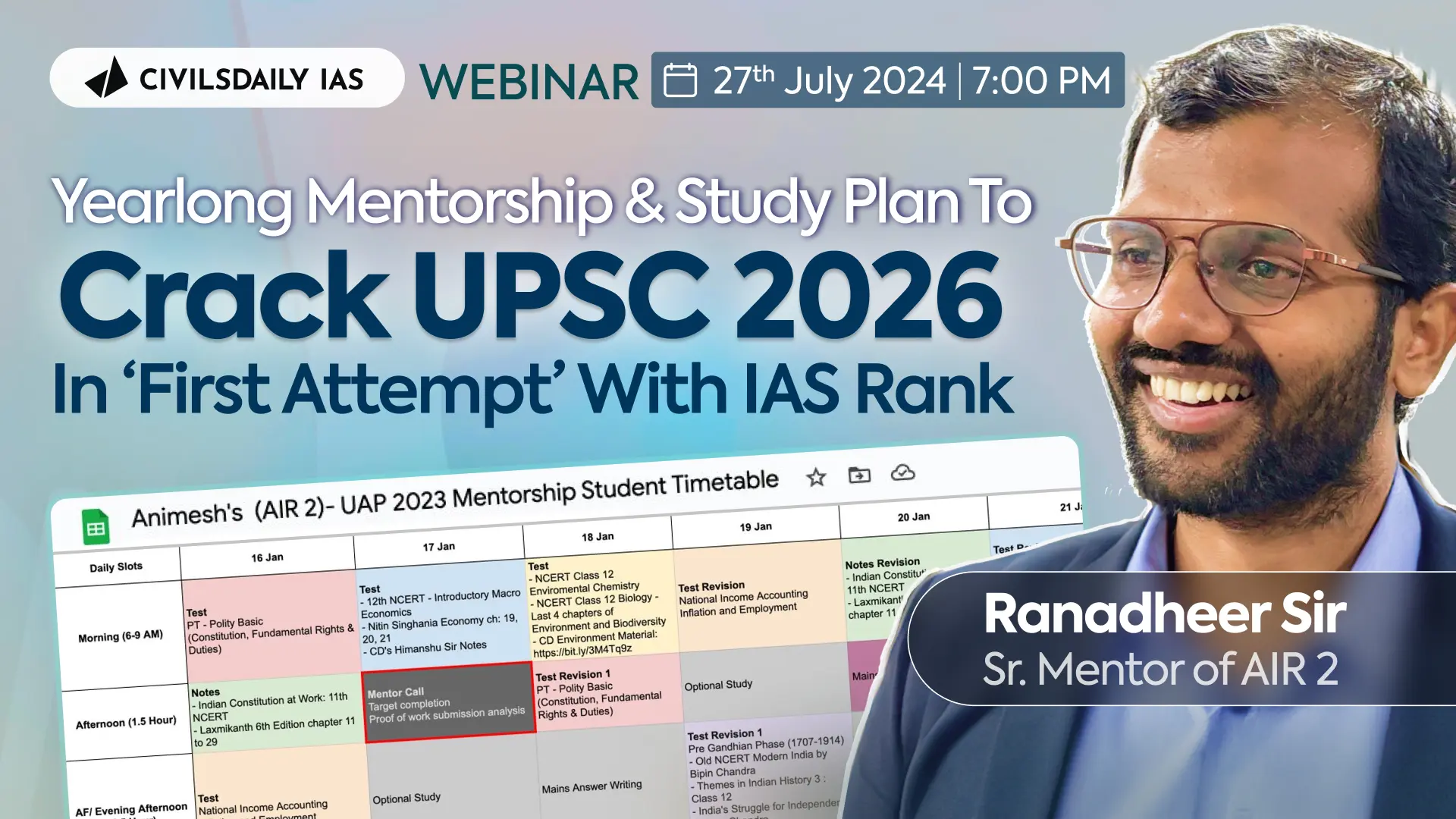Note4Students
From UPSC perspective, the following things are important :
Prelims level: Mediation Bill
Mains level: Read the attached story

The Parliamentary Standing Committee on Law and Justice has recommended substantial changes to the Mediation Bill.
Mediation Bill, 2021
- Mediation is a voluntary dispute resolution process.
- It is an informal, confidential, flexible, and non-binding process in which an impartial person called a “mediator” helps the parties to understand the interests of everyone involved, and their practical and legal choices.
- The Bill requires persons to try to settle civil or commercial disputes through mediation before approaching any court or tribunal.
- Agreements resulting from mediation will be binding and enforceable in the same manner as court judgments.
Key features of the Bill
(1) Pre-litigation mediation
- Parties must attempt to settle civil or commercial disputes by mediation before approaching any court or certain tribunals.
- Even if they fail to reach a settlement through pre-litigation mediation, the court or tribunal may at any stage refer the parties to mediation if they request for the same.
(2) Disputes not fit for mediation
- The Bill contains a list of disputes which are not fit for mediation.
- These include disputes: (i) relating to claims against minors or persons of unsound mind, (ii) involving criminal prosecution, and (iii) affecting the rights of third parties.
- The central government may amend this list.
- It will apply to mediations conducted in India: (i) involving only domestic parties, (ii) involving at least one foreign party and relating to a commercial dispute (i.e., international mediation).
(3) Mediation process
- Mediation proceedings will be confidential, and must be completed within 180 days (may be extended by 180 days by the parties).
- A party may withdraw from mediation after two sessions.
- Court annexed mediation must be conducted as per the rules framed by the Supreme Court or High Courts.
(4) Mediators
- Mediators may be appointed by: (i) the parties by agreement, or (ii) a mediation service provider (an institution administering mediation).
- They must disclose any conflict of interest that may raise doubts on their independence.
- Parties may then choose to replace the mediator.
(5) Mediation Council of India
- The central government will establish the Mediation Council of India.
- The Council will consist of a chairperson, two full-time members (with experience in mediation or ADR), three ex-officio members (including the Law Secretary, and the Expenditure Secretary), and a part-time member from an industry body.
- Functions of the Council include: (i) registration of mediators, and (ii) recognising mediation service providers and mediation institutes (which train, educate, and certify mediators).
(6) Mediated settlement agreement
- Agreements resulting from mediation (other than community mediation) will be final, binding, and enforceable in the same manner as court judgments.
- They may be challenged on grounds of: (i) fraud, (ii) corruption, (iii) impersonation, or (iv) relating to disputes not fit for mediation.
(7) Community mediation
- This may be attempted to resolve disputes likely to affect the peace and harmony amongst residents of a locality.
- It will be conducted by a panel of three mediators (may include persons of standing in the community, and representatives of resident welfare associations).
Issues highlighted by the Parliamentary Committee
- Compulsion: The panel cautioned against making compulsory pre-litigation mediation.
- Scope for Delay: Making pre-litigation mediation mandatory may actually result in delaying of cases.
- Judicial intervention: The provision to give higher courts the power to frame rules for mediation was also questioned.
- Narrower scope: The members questioned the non-applicability of the provisions to non-commercial disputes involving the Government and its agencies.
- No bar of experienced professionals: The MCI, established to regulate the profession of mediators, may not have representation of practising mediators with adequate experience.
- Prior approval from centre: The MCI requires prior approval from the central government before issuing regulations related to its essential functions. It is not clear why such prior approval is required.
- Domestic conduct of mediation: The Bill applies to international mediations only if they are conducted in India and not outside.
Why need a law on Mediation?
- Fast: Because the amount of time necessary for the parties and therefore the Mediator to organize for the mediation is significantly way less as that needed for trial or arbitration, a mediation of dispute can occur relatively early.
- Flexible: There exists no set formula for mediation. Different Mediators employ different styles. Procedures are often modified to satisfy the requirements of a specific case.
- Cost Efficient: Because mediation generally requires less preparation, is very less formal than trial or arbitration, and may occur at an early stage of the dispute.
- Brings Parties Together: Parties can save and sometimes rebuild their relationship like during a family dispute or commercial dispute.
- Convenient: The parties can control the time, location, and duration of the proceedings to large extent. Scheduling isn’t subject to the convenience of courts.
- Creative: Resolutions that aren’t possible through arbitration or judicial determination could also be achieved.
- Confidential: What’s said during mediation are often kept confidential. Parties wishing to avoid the glare of publicity can use mediation to stay their disputes low-key and personal
- Control: The parties control the result of the mediation and either party has the advantage of terminating the mediation, if it’s felt that it’s not within the interest of the said party.
UPSC 2023 countdown has begun! Get your personal guidance plan now! (Click here)
Get an IAS/IPS ranker as your 1: 1 personal mentor for UPSC 2024
